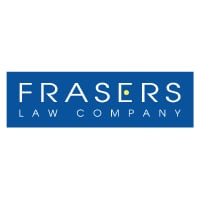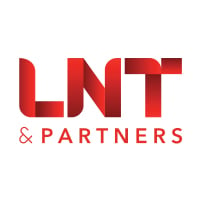
Head of legal and public affairs | Green Future



Danh Nguyen
Head of legal and public affairs | Green Future
What are the most significant cases, projects, or transactions that you and your legal team have recently been involved in?
The most exciting project my team has handled in recent months has been steering our presence expansion into the United States, Philippines, Indonesia and India. Our work has ranged from assessing electric-vehicle regulatory frameworks in these markets, securing outbound investment approvals, establishing new legal entities, drafting standard contract templates and internal governance policies, to coordinating with external counsel and recruiting local teams to support the business on the ground.
How do you approach managing legal aspects during periods of instability or crisis to ensure the organisation’s resilience?
Organisations typically fail in times of crisis not because the lack of resources, but they are slow to innovate and adapt. One of the main reasons for is the tendency of legal departments to say “no” reflexively. This pattern of automatic resistance has become symbolic of why so many businesses struggle to keep pace with change, for many organisations, legal function is viewed as a brake, rather than an enabler.
My approach is to embed the legal function directly into the company’s decision-making departments, with operational, financial, innovating, business, tech and strategy. By ensuring that lawyers are present in management discussions, not as an afterthought, but as a core part — we create a culture of agility. Legal advisors who sit in strategy meetings regularly develop a far deeper understanding of the commercial pressure, technical capacity and day-to-day issues. This proximity allows them to offer practical advice in real time, so that management can make informed decisions on time, instead of being forced to wait for lengthy legal memos based on incomplete briefs. The result is a business that moves faster.
At the same time, modern legal teams must learn how to assess options rather than simply answers. Too often, legal advice is delivered in a binary format “YES” or “NO”. In today’s environment, legal departments should evaluate scenarios — weighing both risk and impact — and present management with a set of clear options, for example:
Option A: high risk / immediate commercial impact.
Option B: medium risk / medium-term benefit.
Option C: low risk / scalable, long-term development.
This forces legal team to think commercially with data-driven evidence.
General counsel often speak of the need to be strategic to reach the pinnacle of the profession. What does being strategic mean to you?
I am not entirely sure what constitutes the “pinnacle” of the General Counsel profession, nor whether I have already reached it. However, after 7 years in the role, I believe I can clearly distinguish between a strategic and a non-strategic approach to being a GC. In example, when designing the annual compliance checklist for a new financial year, a strategic General Counsel tends to ask very different questions from a tactical one:
“What do we need to do to avoid breaking the law?” Then you are operating with a mindset of merely staying out of trouble.
“How can we structure compliance in a way that advances the company’s long-term reputation in the green transition?” Then beyond helping ensure regulatory adherence, you are using compliance as a tool to shape public perception, strengthen relationships with regulators, and capture future commercial opportunities linked to national green-infrastructure commitments.
In short: legal compliance can be treated as a shield — or it can be designed as a strategic way. The difference lies in the questions you choose to ask.
Have you had any experiences during your career as a lawyer that stand out as particularly unique or interesting?
Serving as General Counsel at 24 and I felt from the first time that I had created an impact that mattered.
Very few Vietnamese lawyers have had the opportunity to begin their General Counsel roles at 24, especially in Africa, as I did, at a telecommunications company in Mozambique. In that role, I worked with our leadership team to help millions of low-income people in rural areas gain access to affordable public telecom services, coupled with mobile-money offerings delivered over our network.
Before our arrival, both domestic and international telecom operators focused only on large urban centres. Movitel (my previous-company)’s entry brought telecommunications, internet access and mobile-money services — effectively, rural banking infrastructure — to some of the most underserved communities on the continent.
Although we were not the inventors of these technologies, we fundamentally drove a revolution in telecoms, internet and financial inclusion. We enabled millions of rural Africans to access cashless payment tools, helped promote transparency in financial transactions, and expanded access to information through internet connectivity.
What do you think are the most important attributes for a modern in-house counsel to possess?
At 24, I began my career helping a local telecommunications company expand its operations across Africa. At 32, I started a new chapter helping a local electric-vehicle trading company with a mission to decarbonise across Philippines, Indonesia, the US and now India.
Vietnam’s economy has transformed dramatically since I was born (1994), entered the workforce (2015), and came of age professionally (2025). These changes have convinced me that the next generation of General Counsels must learn how to go global from here.
The critical question is how can we manage global matters through the mindset and lens of a Southeast Asia company? Achieving this requires a shift in mindset, proudly being a Southeast Asia young lawyer, and aiming to dream big— that is what I learn from Vingroup – where I am currently work for.
Try-error mindset
“Well, I think we should try this (AI/legal-tech), but we should only try it in this place for this amount of time, and then we should have a rigorous way of measuring whether or not it’s been successful.”
That’s not the way we’re trained to think. Lawyers used to live in a world where, at least, they pretended there was certainty: you can do this, you can’t do that; this is within the law.
Dealing with new tech (like AI) – we don’t know the answer. Nobody can explain to you exactly how AI works, which means nobody knows what is the problems, what is the risks, and what should we expect. As in-house counsel, every first-hand policy from you could be wrong. Ban it? No, everybody’s using it already. Use it for everything? No, that’s a disaster, how about business secret leakage?
Thus, we learn from a lot of people who know a lot about technology but don’t know anything about law. Some of them are trying to sell technology to you. I call them “having hammers looking for nails.” In fact, they’ve developed a technology and are just looking for something to use it on. The interesting part is then we have a bunch of people who know a lot about law but know nothing about technology are going to buy those technology, but in fact they are just looking for some shiny new toys.
Effective use of technology demands a nuanced understanding of its limitations and the context in which it is applied. You need to accept the error when you try, ensuring that technology addresses your real use cases.
Head of legal and public affairs | Galaxy Entertainment and Education
Head of legal and public affairs | Galaxy Entertainment and Education